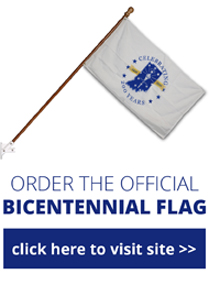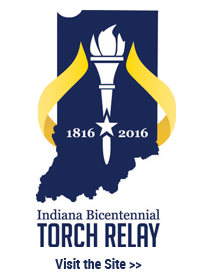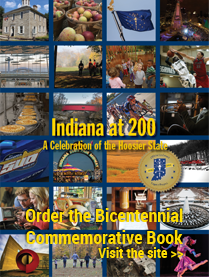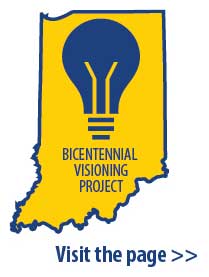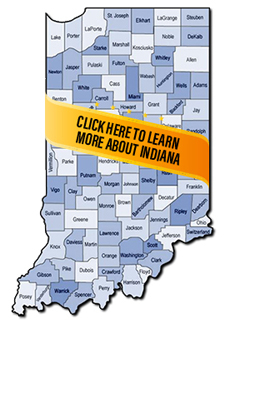- Business & Agriculture
- Residents
- Government
- Education
- Taxes & Finance
- Visiting & Playing
- Family & Health
Boone County

Q&A with County Coordinator Jane Hammock
What do you consider the key accomplishment(s) of your county’s Bicentennial celebration?
- Bicentennial Ball , Completed Torch Run, arrival of bison
What Legacy Project do you most like to tell people about, and why?
- Time Capsule for 300th birthday, Baby Cap project
Describe a highlight or most memorable moment related to your county's Bicentennial celebration.
- The arrival of our bison (finally) and stealing Mrs Pence's bison for our July 4th parade 2016.
How/where are you preserving information and artifacts related to your county's celebration?
- Right now at historical society.
Total number of volunteers who participated
- About 10 on committee. Baby cap project had over 100 knitters.
Estimated total attendance
- About 100 people attended the Ball.
Estimated dollar amount raised (if applicable)
- About $3,500.
Estimated dollar amount spent (if applicable)
- All of it!
Boone County Legacy Projects
- 9/11 Beam Memorial
- 10th Annual Z'Green Fest
- Back to the Roots of Indiana Food
- Bicentennial Flag Raising and Inaugural Civil War Artillery Deployment
- Boone County Bicentennial Babies
- Boone County Time Capsule
- Boone County Senior Services Bicentennial Biography Project
- CruZionsville Shares Indiana's Historical Relevance to the Automobile Industry
- Farm Heritage Trail – Bicentennial Nature Trust
- Boone County Giant Map and Timeline
- Going Native with Animalia
- Gourd-geous Indiana: A Gourd Challenge
- Greening the Statehouse 2016
- Lincoln's Legacy
- One Hundred Years Later: Opening Boone County’s State Centennial Time Capsule
- Telling the Library’s Story: A History of the Lebanon Public Library
- Tell Us More: Zionsville, IN Narratives
- Thorntown Historical Research Program
- Two-Thousand-Pound Food Challenge
- Whitestown Brew Fest
- Zionsville Park and Recreation’s Zion Nature Center: Bicentennial Nature Center Network
Photos of Boone County's Bicentennial Activities and Events
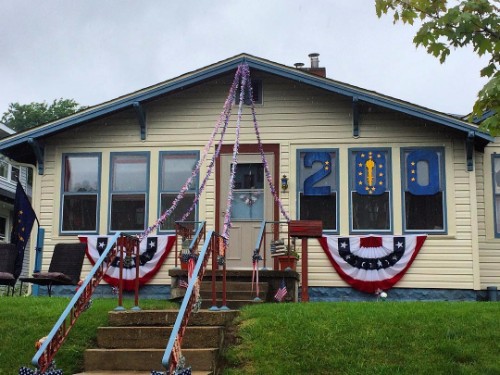
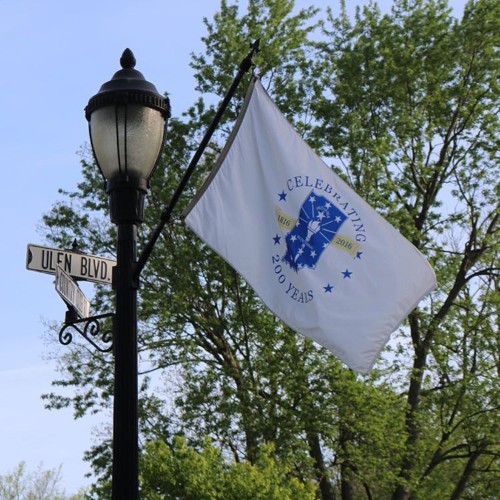
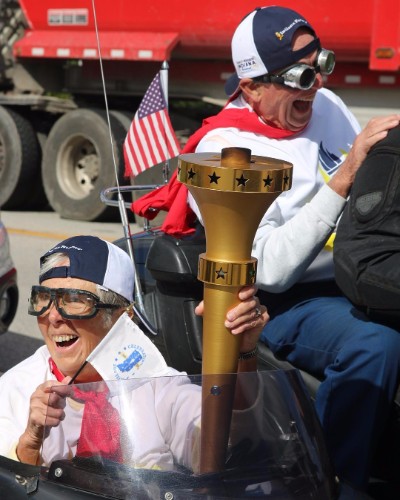
Boone County Facts
Boone County was formed on April 1, 1830, and named for frontiersman Daniel Boone.The county commissioners met near the center of the county on May 1, 1831 to identify a county seat, which by law had to be within 2 miles (3.2 km) of the county’s center; the city of Lebanon was selected to serve this purpose.
The county seat was named Lebanon because a stand of hickory trees on the site reminded one of the town’s commissioners of the Biblical cedars of Lebanon.
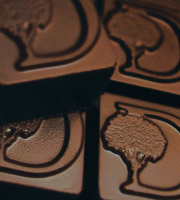 Zionsville is known for its shopping. Visitors to the town also enjoy walking or driving through the quaint Victorian-style village.
Zionsville is known for its shopping. Visitors to the town also enjoy walking or driving through the quaint Victorian-style village.
Wonderful chocolate is a distinctive feature of Boone County. Local, state, national, and international visitors have enjoyed the fine confections of Boone County’s three local chocolatiers: Donaldson’s Finer Chocolates in Lebanon; Ganache Chocolatier in Zionsville, which offers tours and pure enjoyment for the chocolate lover; and David Alan Chocolatier also in Lebanon, which is known for its sweet confections.
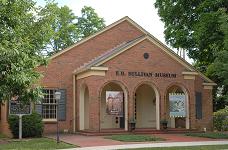 Zionsville offers the P.H. Sullivan Munce Cultural Center and the Munce Art Center.
Zionsville offers the P.H. Sullivan Munce Cultural Center and the Munce Art Center.
Thorntown has the Thorntown Heritage Museum and the Sugar Creek Art Center.
Lebanon visitors can tour the historic Cragun House at 404 W. Main Street.
County Seat: Lebanon
Year Organized: 1830
Square Miles: 422.91






